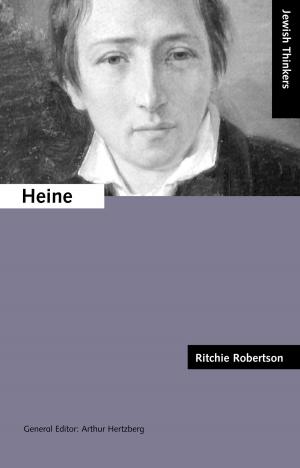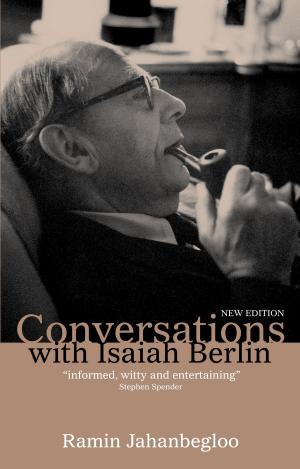Ahad Ha'am Elusive Prophet
Ahad Ha'am and the origins of Zionism
Nonfiction, Religion & Spirituality, Judaism, Biography & Memoir, Religious| Author: | Steven J Zipperstein | ISBN: | 9781905559527 |
| Publisher: | Halban | Publication: | August 27, 2012 |
| Imprint: | Halban | Language: | English |
| Author: | Steven J Zipperstein |
| ISBN: | 9781905559527 |
| Publisher: | Halban |
| Publication: | August 27, 2012 |
| Imprint: | Halban |
| Language: | English |
An incisive biography of the guiding intellectual presence - and chief internal critic - of Zionism, during the movement's formative years between the 1880s and the 1920s. Ahad Ha'am ('One of the People') was the pen name of Asher Ginzberg (1856-1927), a Russian Jew whose life intersected nearly every important trend and current in contemporary Jewry. His influence extended to figures as varied as the scholar of mysticism Gershom Scholem, the Hebrew poet Hayyim Nahman Bialik, and the historian Simon Dubnow. Theodor Herzl may have been the political leader of the Zionist movement, but Ahad Ha'am exerted a rare, perhaps unequalled, authority within Jewish culture through his writings. Ahad Ha'am was a Hebrew essayist of extraordinary knowledge and skill, a public intellectual who spoke with refreshing (and also, according to many, exasperating) candour on every controversial issue of the day. He was the first Zionist to call attention to the issue of Palestinian Arabs. He was a critic of the use of aggression as a tool in advancing Jewish nationalism and a foe of clericalism in Jewish public life. His analysis of the prehistory of Israeli political culture was incisive and prescient. Steven J. Zipperstein offers all those interested in contemporary Jewry, in Zionism, and in the ambiguities of modern nationalism a wide-ranging, perceptive reassessment of Ahad Ha'am's life against the back-drop of his contentious political world. This influential figure comes to life in a penetrating and engaging examination of his relations with his father, with Herzl, and with his devotees and opponents alike. Zipperstein explores the tensions of a man continually torn between sublimation and self-revelation, between detachment and deep commitment to his people, between irony and lyricism, between the inspiration of his study and the excitement of the streets. As a Zionist intellectual, Ahad Ha'am rejected both xenophobia and assimilation, seeking for the Jews a usable past and a plausible future.
An incisive biography of the guiding intellectual presence - and chief internal critic - of Zionism, during the movement's formative years between the 1880s and the 1920s. Ahad Ha'am ('One of the People') was the pen name of Asher Ginzberg (1856-1927), a Russian Jew whose life intersected nearly every important trend and current in contemporary Jewry. His influence extended to figures as varied as the scholar of mysticism Gershom Scholem, the Hebrew poet Hayyim Nahman Bialik, and the historian Simon Dubnow. Theodor Herzl may have been the political leader of the Zionist movement, but Ahad Ha'am exerted a rare, perhaps unequalled, authority within Jewish culture through his writings. Ahad Ha'am was a Hebrew essayist of extraordinary knowledge and skill, a public intellectual who spoke with refreshing (and also, according to many, exasperating) candour on every controversial issue of the day. He was the first Zionist to call attention to the issue of Palestinian Arabs. He was a critic of the use of aggression as a tool in advancing Jewish nationalism and a foe of clericalism in Jewish public life. His analysis of the prehistory of Israeli political culture was incisive and prescient. Steven J. Zipperstein offers all those interested in contemporary Jewry, in Zionism, and in the ambiguities of modern nationalism a wide-ranging, perceptive reassessment of Ahad Ha'am's life against the back-drop of his contentious political world. This influential figure comes to life in a penetrating and engaging examination of his relations with his father, with Herzl, and with his devotees and opponents alike. Zipperstein explores the tensions of a man continually torn between sublimation and self-revelation, between detachment and deep commitment to his people, between irony and lyricism, between the inspiration of his study and the excitement of the streets. As a Zionist intellectual, Ahad Ha'am rejected both xenophobia and assimilation, seeking for the Jews a usable past and a plausible future.















